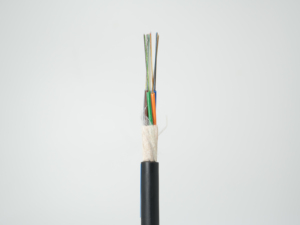Understanding CCS Tube
The CCS tube, or Copper Clad Steel tube, is an innovative product that combines the excellent conductive properties of copper with the strength and durability of steel. This dual composition makes the CCS tube a preferred choice in various industries, providing a unique solution for thermal and electrical conductivity challenges. With numerous applications across different sectors, the CCS tube is gaining popularity for its efficiency and reliability.
Types of CCS Tube
CCS tubes come in various types, tailored to meet specific requirements in different applications. Here are some common types:
- Thin Wall CCS Tube: Designed for applications where weight and flexibility are critical. Ideal for telecommunications and electrical connections.
- Thick Wall CCS Tube: Offers enhanced strength and durability, making it suitable for structural applications in construction and heavy industries.
- Insulated CCS Tube: Features an insulating layer to minimize heat loss and enhance efficiency in heating applications.
- Pre-treated CCS Tube: Coated with protective materials to increase corrosion resistance, which is ideal for outdoor or harsh environments.
Features and Applications of CCS Tube
The CCS tube boasts several key features that enhance its functionality, making it a versatile product in various fields. The primary features include:
- Superior Conductivity: The copper exterior provides excellent electrical and thermal conductivity, essential for electrical wiring and heat transfer applications.
- Strength and Durability: The steel core offers robust strength, making it capable of withstanding high pressure and demanding environments.
- Corrosion Resistance: The combination of copper and steel allows for better resistance against corrosive elements, prolonging the lifespan of the product.
- Cost-Effective Solution: By reducing the amount of copper used while leveraging the properties of steel, CCS tubes present a more affordable option compared to solid copper alternatives.
Applications of CCS tubing include:
- Electrical wiring in residential and commercial buildings.
- Heat exchangers in HVAC systems.
- Telecommunications infrastructure.
- Oil and gas piping systems.
How to Choose the Right CCS Tube
Selecting the appropriate CCS tube involves several considerations to ensure compatibility with your specific needs. Here are some key factors:
- Application Requirements: Identify the intended use of the CCS tube. Different applications may require varying wall thicknesses, lengths, and heat resistance capabilities.
- Environmental Conditions: Consider the environmental factors such as temperature, humidity, and exposure to corrosive agents to select a tube with the appropriate protective features.
- Cost Considerations: Balance your budget with performance requirements. While high-end tubes offer superior performance, cost-effective alternatives are available without compromising too much on quality.
- Compliance and Standards: Ensure that the chosen CCS tube meets relevant industry standards and certifications for safety and performance.
By evaluating these factors, you can make a more informed decision tailored to your project needs, ensuring optimal performance and longevity of the CCS tube in its application.
Conclusion
In summary, the CCS tube represents a remarkable advancement in material engineering, offering an ideal mix of strength, conductivity, and cost-efficiency. With a diverse range of types, features, and applications, it's clear why many industries are adopting CCS tubes for their projects. Whether you are in construction, electronics, or HVAC applications, understanding how to choose and utilize CCS tubes will serve your business well in achieving reliable and durable solutions.










































































































































